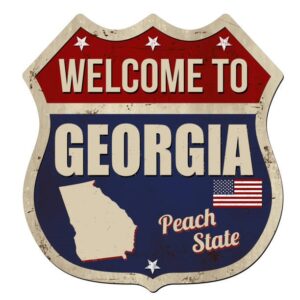 By Gerald L. Maatman, Jr., Gregory S. Slotnick, and Zachary J. McCormack
By Gerald L. Maatman, Jr., Gregory S. Slotnick, and Zachary J. McCormack
Duane Morris Takeaways: On June 21, 2024, in Cinar v. R&G Brenner Income Tax, LLC, No. 20-CV-1362, 2024 U.S. Dist. LEXIS 110045 (E.D.N.Y. June 21, 2024), Magistrate Judge James R. Cho of the U.S. District Court for the Eastern District of New York recommended granting class certification in a suit accusing R&G Brenner Income Tax Centers, also known as R&G Brenner Income Tax Consultants (“R&G Brenner”) of failing to pay overtime wages in violation of the Fair Labor Standards Act (“FLSA”) and the New York Labor Law (“NYLL”). Judge Cho was unpersuaded by R&G Brenner’s arguments that plaintiffs’ motion to certify the class and distribute notice to putative class and collective action members was untimely and that plaintiffs could not establish numerosity, commonality, predominance and superiority under Rule 23. The ruling recommended that R&G Brenner’s employees, working as income tax preparers since March 13, 2014, met the requirements for class certification.
In determining the timeliness of the class certification motion, Judge Cho opined that R&G Brenner should not have been surprised by the motion considering that earlier pleadings in the record alluded to its likelihood. Further, the rules governing class actions indicate there is no deadline to file a motion to certify a class. While explaining that plaintiffs could establish numerosity, commonality, predominance and superiority, Judge Cho relied on the terms of more than eighty tax preparers’ employment agreements, which were derived from a form template that R&G Brenner adjusted slightly to allow for individualized compensation and work schedules. Therefore, the Court recommended the tax preparers met the requirements to secure class certification in the lawsuit accusing R&G Brenner of failing to pay overtime.
Case Background
R&G Brenner operates a tax preparation business that maintains approximately thirty offices in the New York metropolitan area. Id. at *2. During tax season, R&G Brenner employs approximately 75 income tax preparers at these different offices, which it classifies as overtime exempt. Id. at *3. On March 13, 2020, tax preparers for R&G Brenner filed a class and collective action claiming the employer violated federal and state wage and hour law by denying them overtime and by taking unlawful deductions from their wages. Id. at *4.
R&G Brenner paid the income tax preparers on a commission-only basis, in which the employees received a weekly advance on their commissions that was later deducted from their final gross commissions at the end of the tax season. Id. at *3. At the end of the tax season, R&G Brenner then created a final reconciliation for each income tax preparer, including: (i) the gross commission earned for the tax season; (ii) all advances that were paid during the season; (iii) all deductions withheld from the employee’s wages; and (iv) the net commission earned by and payable to the income tax preparer for the tax season. Id. at *4. Plaintiffs alleged that this compensation structure denied overtime compensation to the tax preparers even though they routinely worked more than forty hours per week. Id. at *6.
In addition to the contention that R&G Brenner failed to compensate tax preparers for overtime worked, plaintiffs further claimed that R&G Brenner’s policies made unlawful deductions from tax preparers’ wages, including credit card service charges, chargeback receipts, missing deposit money, employee referrals, “early bird specials,” reward money and promo money. Id. Finally, plaintiffs claimed that R&G Brenner did not provide the tax preparers with accurate written wage statements each week and did not pay them at least monthly, as required by New York State law. Id.
The Court’s Decision
Plaintiffs brought their FLSA and NYLL claims under a single action using the procedural mechanisms available under 29 U.S.C. § 216(b) and Rule 23, and moved the Court to certify a class of all income tax preparers who worked for R&G Brenner in New York since March 13, 2014. Id. at *8. R&G Brenner opposed plaintiffs’ motion, arguing the motion was untimely and that plaintiffs had not established numerosity, commonality, predominance, and/or superiority to certify the proposed class action. Id. at *1.
Even though Rule 23 does not provide a deadline for filing a motion for class certification, R&G attempted to persuade the Court to deny the motion as untimely, and therefore prejudicial. Id. at *10. Unpersuaded by this argument, Judge Cho explained that the claims of surprise were contradicted by the plaintiffs’ complaint and amended complaint that put R&G Brenner on notice of the class-wide claim. Id. In addition, R&G Brenner’s timeliness argument was upended by its stipulation with plaintiffs containing an express reservation of plaintiffs’ rights to move for class certification. Id. at *12.
R&G Brenner also failed to persuade Judge Cho that plaintiffs could not fulfill the numerosity requirement to certify the class. Id. at *8. Numerosity is presumed when the putative class has 40 or more members, and plaintiffs identified at least 87 putative class members. Id. However, R&G Brenner argued that the Court should not consider 84 of the 87 collective action notice recipients for numerosity purposes because they declined to opt-in to the collective action. Id. R&G Brenner, however, could not offer any authority in support of this position, and the Court relied on Second Circuit precedent indicating that the number of opt-ins under the FLSA has no bearing on the numerosity requirement under Rule 23. Id.
Finally, plaintiffs successfully demonstrated commonality and typicality through R&G Brenner’s policy of failing to pay overtime compensation, failing to provide plaintiffs with accurate wage statements pursuant to NYLL, delaying payment to plaintiffs, and withholding unlawful deductions. Id. at *15. Plaintiffs, as well as all income tax preparers, were required to sign employment agreements prior to the tax season which included their compensation and work schedule. Id. Those agreements were based on form templates that R&G Brenner adjusted to allow for individualized compensation and work schedules, but were otherwise standardized. Id. Thus, the Court determined that the language of the agreements was similar with the exception of commission rates, salary draws, and work schedules. Id. Relying on the foregoing reasoning, Judge Cho recommended granting the motion to certify the class, allowing the parties until July 8, 2024 to object to his recommendation and report. Id. at *40.
Implications For Employers
Judge Cho’s recommendation and report serves as a cautionary tale for employers drafting standard employment agreements. Even with differing compensation and work schedules, employment contracts derived from standardized language may provide the necessary elements for a Court to find the commonality and typicality requirements of a proposed class under Rule 23 are satisfied for purposes of class certification. Moreover, the decision serves as a timely reminder that courts may find the opt-in rate of an FLSA collective action unrelated to the issue of Rule 23 class certification within the same litigation.








